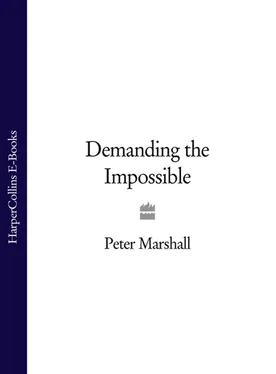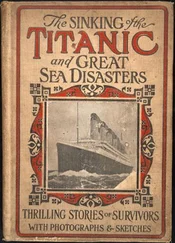PETER MARSHALL
Demanding the Impossible
A History of Anarchism
Be Realistic: Demand the Impossible!
William Collins
An imprint of HarperCollins Publishers Ltd. 1 London Bridge Street London SE1 9GF
www.harpercollins.co.uk
First published in Great Britain by HarperCollins Publishers in 1992 Published by Fontana Press, with amendments in 1993
Copyright © Peter Marshall 1992, 1993, 2008
Peter Marshall asserts the moral right to be identified as the author of this work
A catalogue record for this book is available from the British Library
All rights reserved under International and Pan-American Copyright Conventions. By payment of the required fees, you have been granted the nonexclusive, nontransferable right to access and read the text of this ebook onscreen. No part of this text may be reproduced, transmitted, downloaded, decompiled, reverse engineered, or stored in or introduced into any information storage and retrieval system, in any form or by any means, whether electronic or mechanical, now known or hereinafter invented, without the express written permission of HarperCollins ebooks
HarperCollins Publishers has made every reasonable effort to ensure that any picture content and written content in this ebook has been included or removed in accordance with the contractual and technological constraints in operation at the time of publication
Source ISBN: 9780006862451
Ebook Edition © JULY 2012 ISBN 9780007375837
Version: 2018-12-06
From the reviews of Demanding the Impossible :
‘Large, labyrinthine, tentative: for me these are all adjectives of praise when applied to works of history, and Demanding the Impossible meets all of them.’
GEORGE WOODCOCK, Independent
‘I trust that Marshall’s survey of the whole heart-warming, head-challenging subject will have a large circulation … It is a handbook of real history, which should make it more valuable in the long run than all the mighty textbooks on market economics and such-like ephemeral topics.’
MICHAEL FOOT, Evening Standard
‘Infectious in its enthusiasm, attractive to read … There is more information about anarchism in this than in any other single volume.’
NICOLAS WALTER, London Review of Books
‘Immense in its scope and meticulous in its detail … It covers every conceivable strand in the libertarian little black book.’
ARTHUR NESLEN, City Limits
‘A wide-ranging and warm-hearted survey of anarchist ideas and movements … that avoids the touchy sectarianism that often weakens the anarchist position.’
JAMES JOLL, Times Literary Supplement
‘There’s no mistaking the fact that Demanding the Impossible is timely … a gigantic mural in which every celebrated figure who has ever felt hemmed in by law and government finds a place.’
KENNETH MINOGUE, Sunday Telegraph
‘Peter Marshall, clearly a convinced impossibilist, has set himself a sisyphean task. His book is a kind of model of what it talks about – a sphere of near-structureless co-existence, a commune or “phalanstery” for all the friends of libertarianism from Wat Tyler to Walt Whitman to Tristan Tzara.’
LORNA SAGE, Independent on Sunday
‘Peter Marshall’s massive but very readable survey … deserves a wide readership.’
ANTHONY ARBLASTER, Tribune
‘The most compendious, most studied and most enlightening read of anarchist history.’
ANDREW DOBSON, Anarchist Studies
‘Excellent … a lively and heartening study.’
RONALD SHEEHAN, The Irish Press
‘Reading about anarchism is stimulating, funny and sad. What more can you ask of a book?’
ISABEL COLEGATE, The Times
‘Interest in anarchy … was reawakened by the publication of Peter Marshall’s massively comprehensive Demanding the Impossible.’
PETER BEAUMONT, Observer
For Dylan and Emily
Cover
Title Page
Copyright
Praise
Dedication
Introduction
PART ONE: Anarchism in Theory
1 The River of Anarchy
2 Society and the State
3 Freedom and Equality
PART TWO: Forerunners of Anarchism
4 Taoism and Buddhism
5 The Greeks
6 Christianity
7 The Middle Ages
8 The English Revolution
9 The French Renaissance and Enlightenment
10 The British Enlightenment
PART THREE: Great Libertarians
11 French Libertarians
12 German Libertarians
13 British Libertarians
14 American Libertarians
PART FOUR: Classic Anarchist Thinkers
15 William Godwin: The Lover of Order
16 Max Stirner: The Conscious Egoist
17 Pierre-Joseph Proudhon: The Philosopher of Poverty
18 Michael Bakunin: The Fanatic of Freedom
19 Peter Kropotkin: The Revolutionary Evolutionist
20 Elisée Reclus: The Geographer of Liberty
21 Errico Malatesta: The Electrician of Revolution
22 Leo Tolstoy: The Count of Peace
23 American Individualists and Communists
24 Emma Goldman: The Most Dangerous Woman
25 German Communists
26 Mohandas Gandhi: The Gentle Revolutionary
PART FIVE: Anarchism in Action
27 France
28 Italy
29 Spain
30 Russia and the Ukraine
31 Northern Europe
32 United States
33 Latin America
34 Asia
PART SIX: Modern Anarchism
35 The New Left and the Counter-culture
36 The New Right and Anarcho-capitalism
37 Modern Libertarians
38 Modern Anarchists
39 Murray Bookchin and the Ecology of Freedom
PART SEVEN: The Legacy of Anarchism
40 Ends and Means
41 The Relevance of Anarchism
Epilogue
Reference Notes
Select Bibliography
Index
Acknowledgements
About the Author
By the Same Author
About the Publisher
ANARCHY IS TERROR, the creed of bomb-throwing desperadoes wishing to pull down civilization. Anarchy is chaos, when law and order collapse and the destructive passions of man run riot. Anarchy is nihilism, the abandonment of all moral values and the twilight of reason. This is the spectre of anarchy that haunts the judge’s bench and the government cabinet. In the popular imagination, in our everyday language, anarchy is associated with destruction and disobedience but also with relaxation and freedom. The anarchist finds good company, it seems, with the vandal, iconoclast, savage, brute, ruffian, hornet, viper, ogre, ghoul, wild beast, fiend, harpy and siren. 1 He has been immortalized for posterity in Joseph Conrad’s novel The Secret Agent (1907) as a fanatic intent on bringing down governments and civilized society.
Not surprisingly, anarchism has had a bad press. It is usual to dismiss its ideal of pure liberty at best as utopian, at worst, as a dangerous chimera. Anarchists are dismissed as subversive madmen, inflexible extremists, dangerous terrorists on the one hand, or as naive dreamers and gentle saints on the other. President Theodore Roosevelt declared at the end of the last century: ‘Anarchism is a crime against the whole human race and all mankind should band against anarchists.’ 2
In fact, only a tiny minority of anarchists have practised terror as a revolutionary strategy, and then chiefly in the 1890s when there was a spate of spectacular bombings and political assassinations during a period of complete despair. Although often associated with violence, historically anarchism has been far less violent than other political creeds, and appears as a feeble youth pushed out of the way by the marching hordes of fascists and authoritarian communists. It has no monopoly on violence, and compared to nationalists, populists, and monarchists has been comparatively peaceful. Moreover, a tradition which encompasses such thoughtful and peaceable men as Godwin, Proudhon, Kropotkin, and Tolstoy can hardly be dismissed as inherently terroristic and nihilistic. Of the classic anarchist thinkers, only Bakunin celebrated the poetry of destruction in his early work, and that because like many thinkers and artists he felt it was first necessary to destroy the old in order to create the new.
Читать дальше












